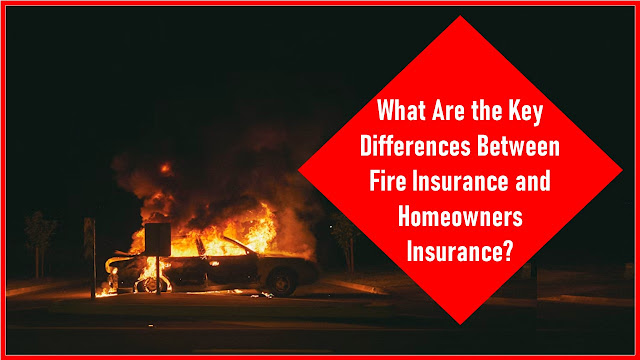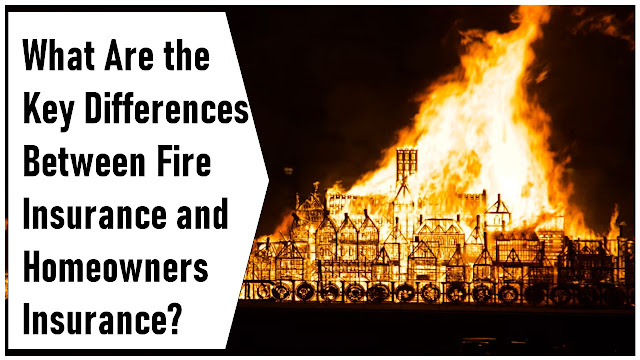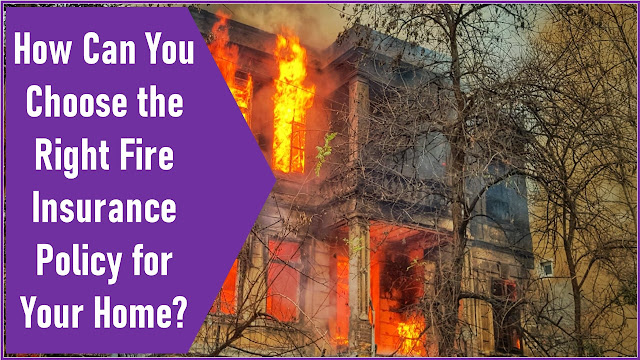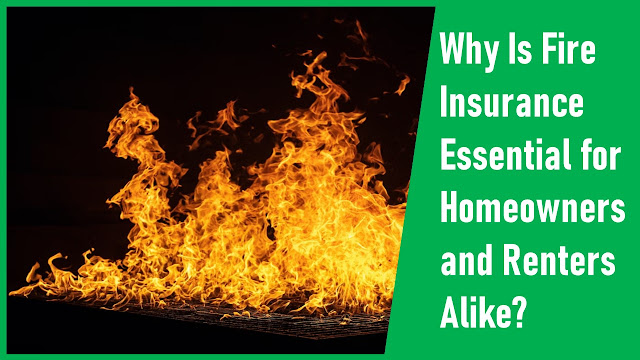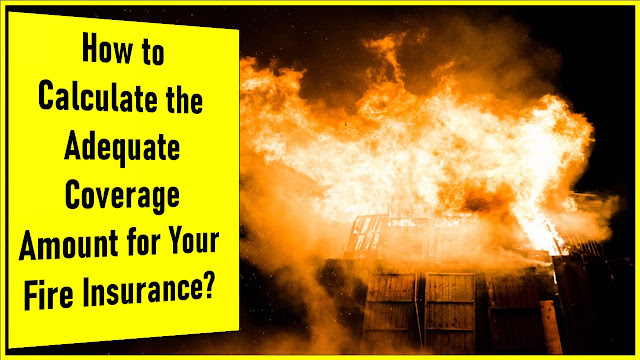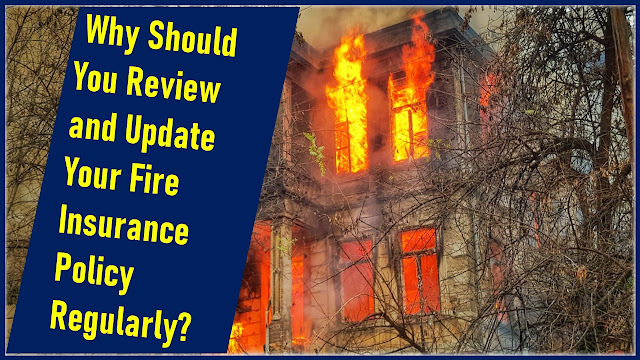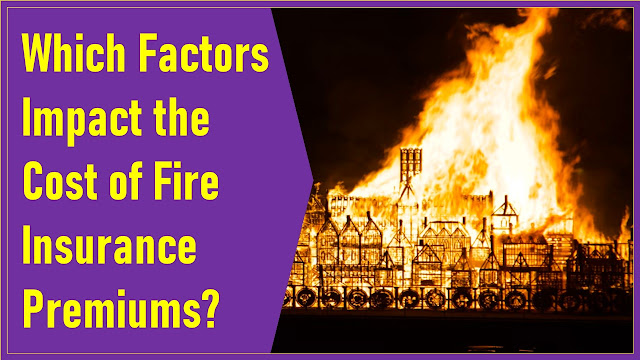What Are the Key Differences Between Fire Insurance and Homeowners Insurance?

Introduction
In this article, I’ll delve into a fundamental aspect of safeguarding your home and possessions: understanding the key differences between fire insurance and homeowners insurance. While both types of coverage play crucial roles in protecting your property, they serve distinct purposes and come with unique features that can significantly impact your financial security in the face of unexpected events.
Firstly, we’ll explore the realm of fire insurance, a specialized policy designed to address the specific threat of fire-related damage. Understanding its limitations and scope is essential for homeowners seeking comprehensive protection. Next, we’ll turn our attention to homeowners insurance, a broader and more versatile policy that encompasses various perils, offering a comprehensive safety net for your home and personal belongings. By the end of this article, you’ll be equipped with the knowledge needed to make informed decisions about which insurance option best suits your needs and offers peace of mind in the event of a disaster.
Purpose and Scope of Coverage
Perils and Risks Covered
Policy Cost and Premiums
Additional Coverages and Riders
Claim Process and Settlement
Choosing the Right Insurance for Your Needs
Purpose and Scope of Coverage:
The primary purpose of both fire insurance and homeowners insurance is to protect your financial interests in the event of unforeseen property-related incidents. However, the key difference lies in their scope of coverage.
Fire insurance serves a very specific purpose—to provide coverage against fire-related perils. This includes damages caused by fires resulting from various sources, such as electrical faults, natural disasters like wildfires, or even accidents like kitchen fires. Its scope is narrow and focused exclusively on fire-related risks. Fire insurance is often chosen by property owners who perceive a higher risk of fire damage due to factors like geographical location or property type. It is especially common in areas prone to wildfires or regions where fire risks are elevated.
In contrast, homeowners insurance offers a more extensive scope of coverage. While it includes protection against fire-related perils, it also covers a wide range of other risks. This includes protection against perils like theft, vandalism, windstorms, hail, and personal liability for accidents that occur on your property. Homeowners insurance is designed to be comprehensive, safeguarding not only your dwelling but also your personal belongings and offering liability coverage. It caters to a broader set of risks that homeowners may face, making it a versatile option for those looking for comprehensive protection for their homes and assets.
In summary, the purpose of fire insurance is narrowly focused on fire-related risks, while homeowners insurance has a broader scope, encompassing various perils and providing comprehensive protection for homeowners and their properties. The choice between the two depends on your individual needs and risk considerations.
Perils and Risks Covered:
One of the primary distinctions between fire insurance and homeowners insurance lies in the perils and risks they cover. Fire insurance, as the name suggests, is specifically designed to protect against fire-related damages. This includes fires resulting from various sources, such as electrical faults, natural disasters like wildfires, or even accidents like kitchen fires. It offers a focused approach to safeguarding your property against fire-related perils.
On the other hand, homeowners insurance provides broader coverage. It typically includes protection not only against fire but also against a wide range of perils like theft, vandalism, windstorms, hail, and even personal liability for accidents that occur on your property. Essentially, homeowners insurance offers a comprehensive safety net that extends beyond just fire-related risks. This broader coverage is beneficial for homeowners who want to protect their property and belongings against a wider array of potential threats.
Policy Cost and Premiums:
The cost of insurance is a crucial factor when deciding between fire insurance and homeowners insurance. Fire insurance policies tend to be more affordable compared to homeowners insurance. Since fire insurance focuses solely on one peril (fire), the premiums are generally lower. However, the cost of fire insurance can vary based on factors like the location of your property, the value of your assets, and the level of coverage you choose.
In contrast, homeowners insurance typically comes at a higher cost. This is because it provides coverage for a broader range of perils and risks, offering more comprehensive protection. The premiums for homeowners insurance are influenced by numerous factors, including the location of your home, its construction quality, your claims history, and the coverage limits you select. While homeowners insurance may be pricier than fire insurance, it often represents a more cost-effective choice for those seeking comprehensive protection against a wide variety of potential threats to their home and personal belongings.
Additional Coverages and Riders:
When comparing fire insurance and homeowners insurance, it’s essential to consider the additional coverages and riders available, as they significantly influence the extent of protection you receive.
Fire insurance policies typically offer limited additional coverages and riders. Since the primary focus is on fire-related risks, you might find options to extend coverage to include smoke damage or water damage resulting from firefighting efforts. Some policies might also cover damage to structures separate from your home, such as detached garages or sheds. However, these additional coverages are usually modest in scope and may not provide the comprehensive protection that homeowners often seek.
Homeowners insurance shines in terms of additional coverages and riders. Most policies come with a range of options to tailor your coverage to your specific needs. These may include endorsements or riders for coverage against perils like earthquakes, floods, or even identity theft. You can also enhance coverage for high-value items like jewelry, art, or electronics through scheduled personal property endorsements. Furthermore, liability coverage can be extended to protect you from costly legal actions.
Riders and endorsements provide flexibility in customizing your homeowner’s insurance policy to align with your unique circumstances and preferences. This versatility is a key advantage for homeowners insurance, offering a level of protection customization that fire insurance typically cannot match.
Claim Process and Settlement:
The claim process and settlement procedures can vary significantly between fire insurance and homeowners insurance.
Claiming under a fire insurance policy is usually straightforward for covered fire-related damages. You will need to document the damage, including providing proof of the fire’s cause and extent. Once the claim is approved, you will typically receive a payout based on the policy’s coverage limits and any deductibles. Since fire insurance has a narrow scope, the claims process is often more streamlined.
The claims process for homeowners insurance can be more complex due to its broader coverage. When filing a claim, you may need to detail the cause of loss, which can vary from fire to theft or storm damage. Additionally, the assessment of personal property losses can require extensive documentation. Claims for liability issues can involve legal complexities. While homeowners insurance provides comprehensive protection, the trade-off may be a somewhat more involved claims process.
Settlements under homeowners insurance can also vary based on the specifics of your policy. Some policies offer replacement cost coverage, which pays to replace or repair damaged items at their current market value. Others may provide actual cash value coverage, which factors in depreciation. Understanding your policy’s terms and conditions is crucial for a smooth claims process and an accurate settlement.
Choosing the Right Insurance for Your Needs:
Ultimately, the decision between fire insurance and homeowners insurance comes down to choosing the right coverage for your needs.
If you are primarily concerned about the risk of fire and have limited interest in protecting against other perils, fire insurance may suffice. It tends to be more cost-effective for this specific risk and offers a straightforward claims process.
However, if you seek comprehensive protection for your home, personal belongings, and potential liability issues, homeowners insurance is the better choice. Its versatility in covering a wide range of perils and the ability to customize coverage through riders make it a robust option for homeowners looking for peace of mind.
In summary, the choice between fire insurance and homeowners insurance depends on your individual priorities, risk tolerance, and budget. Fire insurance provides specialized coverage for fire-related risks, while homeowners insurance offers a broader, more flexible solution. Evaluating your specific needs and consulting with insurance professionals can help you make an informed decision that best safeguards your home and assets.
Conclusion
I hope this exploration of the key differences between fire insurance and homeowners insurance has provided you with valuable insights to make an informed decision when safeguarding your home and possessions. In summary, while both types of insurance serve the fundamental purpose of protecting your financial interests, their scope and coverage options set them apart.
Fire insurance is tailored to address fire-related perils with a focused approach, making it a cost-effective choice for those primarily concerned about this specific risk. On the other hand, homeowners insurance offers comprehensive coverage against a wide range of perils, granting you flexibility and customization options through additional coverages and riders.
Ultimately, the choice between these two types of insurance hinges on your unique circumstances and priorities. Whether you opt for the specialized protection of fire insurance or the comprehensive safety net of homeowners insurance, taking the time to assess your needs and consult with insurance professionals can ensure your peace of mind in the face of unexpected events

